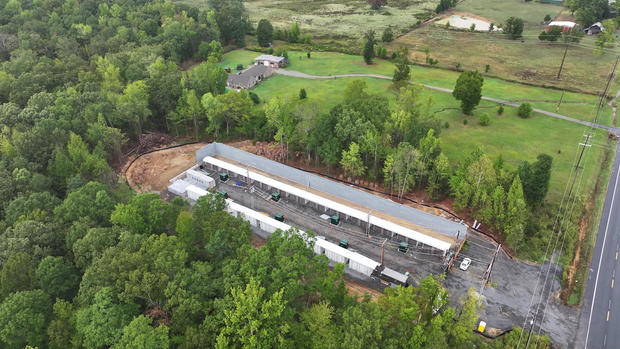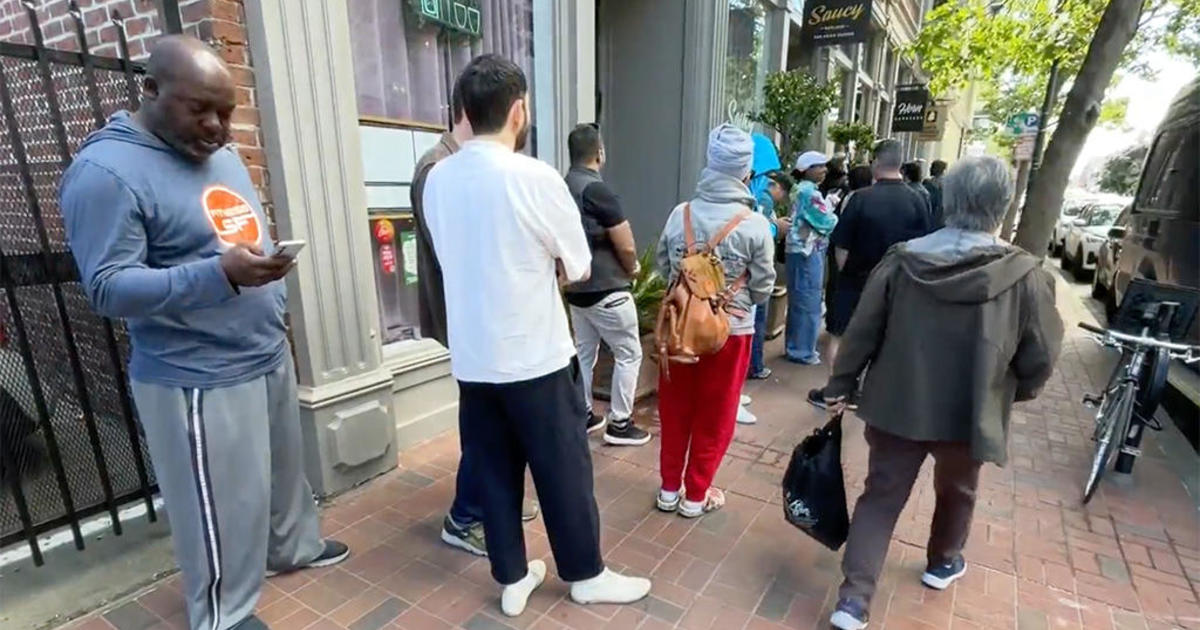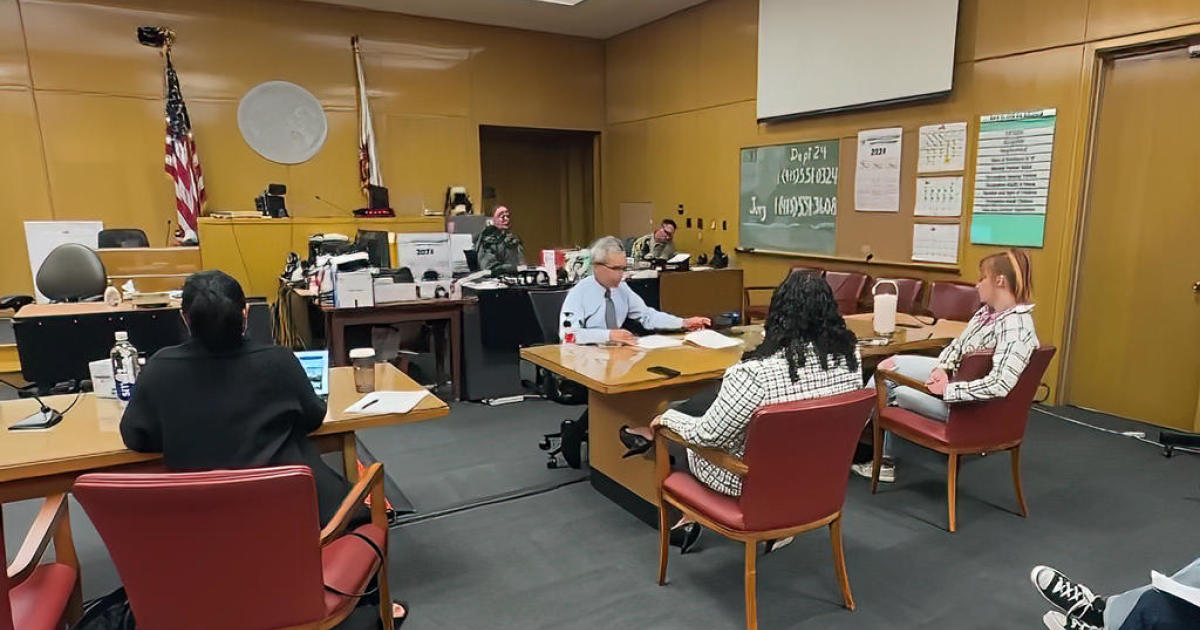Cryptocurrency is making lots of noise, literally
Seven years ago, Gladys Anderson bought her dream home in Bono, Arkansas. "We moved out here to get away from the busyness of town, the noise," she said. "Just peace and quiet, country living."
But last May, the quiet ended, when the noise began. "It was like torture, like a form of military-grade torture," she said.
It's the sound of 17,000 computer fans in a bitcoin facility next door.
Neighbor Shane Markuson takes frequent decibel readings. "Eighty-two was the highest number," he said. [Note, a hair dryer is 90 decibels.]
"It's caused problems for me with my hearing, my blood pressure, with the sweetheart where she gets migraine headaches," Markuson said.
The residents can't even move away. "I don't know who'd wanna buy my house or buy my place," Markuson said. "You know, with this kind of noise, would you wanna live next to it?"
Anderson said she has contacted officials about the noise: "I have spoken to the county judge's office, the county administrator, I have called the governor's office several times. And I know hundreds of other people have called about it."
Asked why she thought nothing has been done, Anderson replied, "Money. It's money."
And it is money, specifically cryptocurrency.
Bitcoin is a digital currency with no centralized bank. Instead, transactions are confirmed by huge banks of computers, run by people called miners. As an incentive to set up these facilities, the system periodically rewards the miners with freshly-minted bitcoins worth hundreds of thousands of dollars.
But all those computers burn staggering amounts of power—and make a lot of noise.
Last year, Arkansas passed what's become known as the "Right to Mine" bill. It prevents local communities from regulating these operations.
Republican State Senator Joshua Bryant was the bill's chief sponsor. "We've got a business-friendly state," he said. "We've got inexpensive land. We've got affordable power. And that is the perfect combination to be a cheap date for this industry."
Bryant figured that bitcoin mining would be good for the state, but there were some unintended consequences. "What we found is that operators started operating in a manner that was not giving quiet enjoyment to the neighbors." He points out that not all bitcoin plants are noisy.
Arkansas Bitcoin miner Ben Smith says that mining plants can be very quiet – cooled by water instead of fans, built far from residential areas, and fully enclosed, rather than open-air. "I would say roughly probably half the sites in Arkansas are owned by the per se bad actors," said Smith. "It's all about design and, honestly, how much money you're gonna put in to be a good neighbor or good actor."
So, who's building all of those cheap, noisy plants? Senator Bryant says it's a web of Chinese companies, with ties all the way to the Chinese government. The New York Times reports that Chinese bitcoin mines are now running in at least 14 states.
But the Chinese government isn't the only invisible hand here. The "right to mine" bill itself was drafted by a bitcoin advocacy group, the Satoshi Action Fund, that's pushing similar bills in at least 12 other states.
In Arkansas, even Senator Bryant concedes that his bill needs fixing. "We are looking at a state law that will, you know, ultimately require these crypto operations to not generate noise," he said.
Meanwhile, Gladys Anderson and her neighbors are suing. "We've set up a GoFundMe; we've done some raffles," she said. "We most recently sold smoked pork butts."
The Bono plant's lawyers say that the volume is within local limits, and said in a statement to "CBS Sunday Morning" that "Our client is currently developing design plans to fully enclose the site … within a matter of months."
Well, good, because Gladys Anderson won't be giving up: "I am a very stubborn woman, and I'm a very scornful woman," she said. "I will become just as big of a headache for them, because they're setting up everywhere."
Editor's Note:
A previous version of this report incorrectly stated that "at least 50 bitcoin mining plants are planned" in Arkansas.
In fact, as of April 14, 2024, when this story originally aired, at least 50 counties in Arkansas had passed ordinances to restrict the sound level emitted by bitcoin mines.
For more info:
- Arkansas State Senator Joshua Bryant
- Crypto investor Ben Smith on Twitter/X
- Docket: Anderson v. Newrays One LLC (Court Listener)
- Arkansas Blockchain Council
Story produced by Amol Mhatre. Editor: Mike Levine.
See also:
- "Crypto for dummies": The how, what and why of using virtual currency ("Sunday Morning")
- Bitcoin mining and its environmental costs ("Sunday Morning")
- Bitcoin billionaires Cameron and Tyler Winklevoss ("Sunday Morning")





